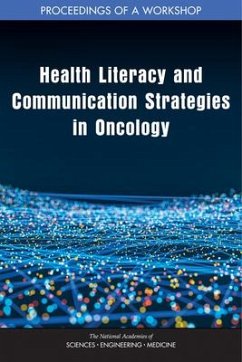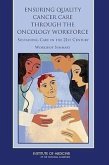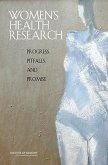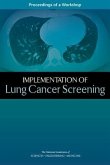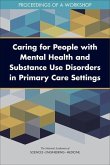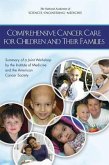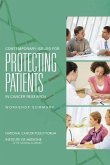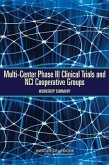Health literacy is a critical skill for engaging in healthy behaviors to reduce disease risk and improve health outcomes across the continuum of cancer care. However, estimates suggest that more than one-third of the U.S. adult population has low health literacy, and nearly half of all patients with cancer have difficulty understanding information about their disease or treatment. Low health literacy among patients with cancer is associated with poor health and treatment outcomes, including lower adherence to treatment, higher rates of missed appointments, and an increased risk of hospitalization. Low health literacy can also impede informed decision making, especially as cancer care becomes increasingly complex and as patients and their families take more active roles in treatment decisions. To examine opportunities to improve communication across the cancer care continuum, the National Cancer Policy Forum collaborated with the Roundtable on Health Literacy to host a workshop, Health Literacy and Communication Strategies in Oncology, July 15-16, 2019, in Washington, DC. Patients, patient advocates, clinicians, and researchers, representatives of health care organizations, academic medical centers, insurers, and federal agencies explored the challenges of achieving effective communication in cancer care. This publication summarizes the presentations and discussions of the workshop.
Hinweis: Dieser Artikel kann nur an eine deutsche Lieferadresse ausgeliefert werden.
Hinweis: Dieser Artikel kann nur an eine deutsche Lieferadresse ausgeliefert werden.

